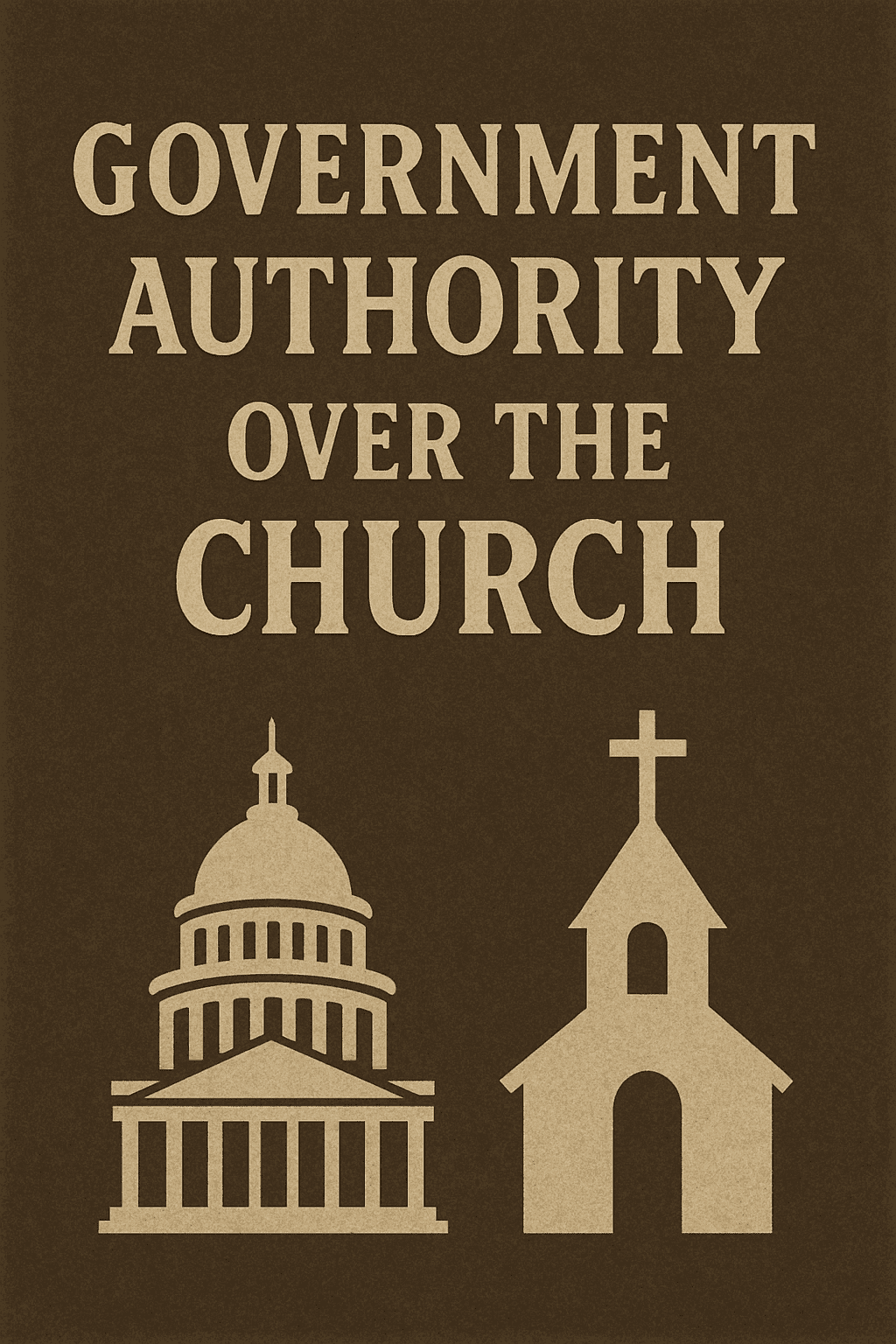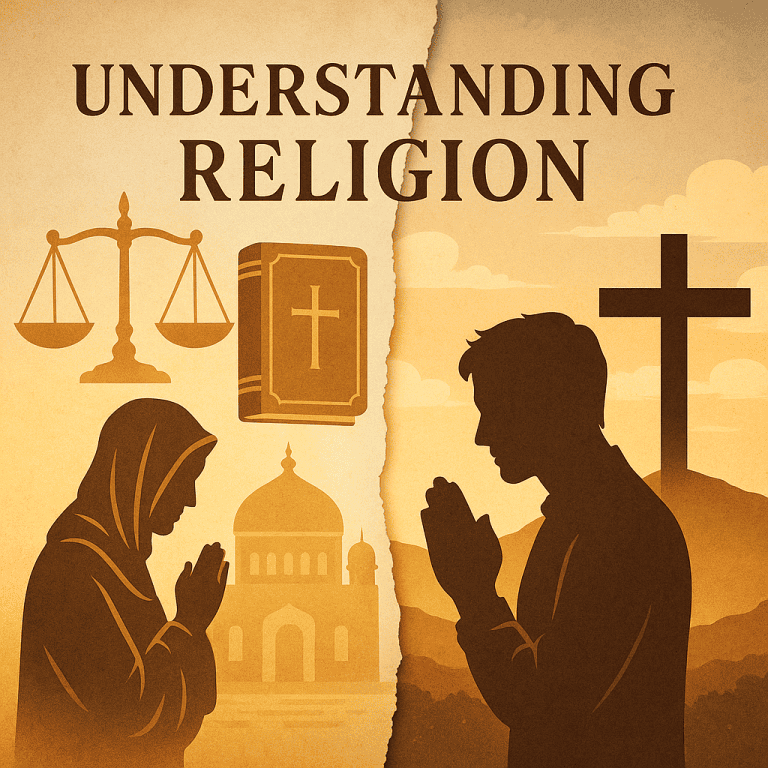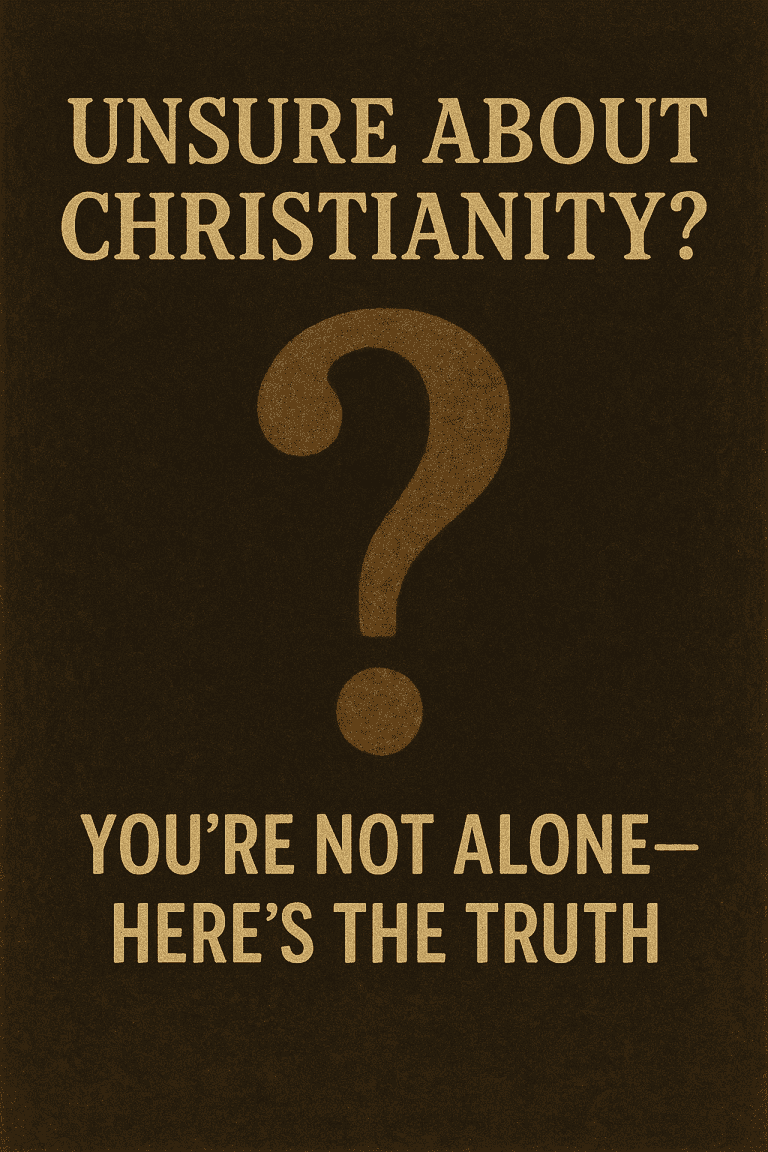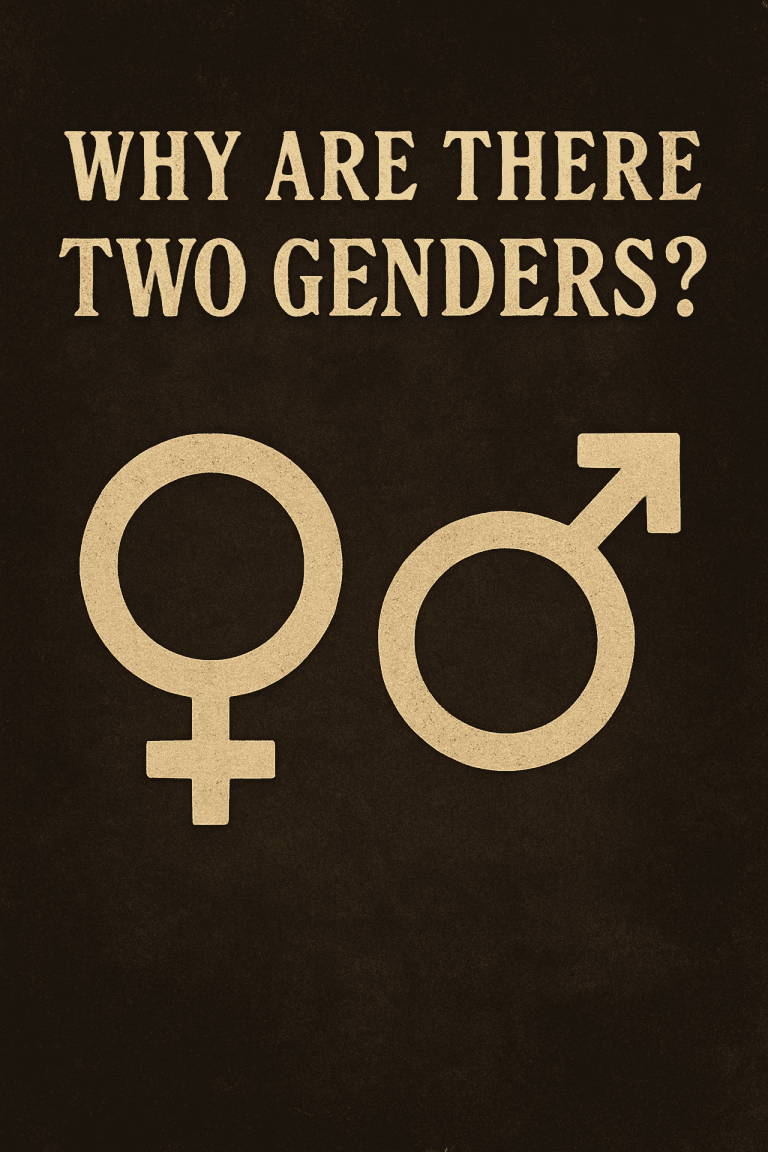Understanding Government Authority Over the Church in Light of Scripture
Let’s start with a simple but powerful truth: Jesus Christ is the head of the Church. No government, no ruler, no political system—just Jesus Christ.
Now, that might seem like an easy statement to accept. But over the centuries, governments have tried to impose their authority over the church, and some Christians have mistakenly believed they were required to comply. Why? Because they misunderstand Romans 13.

This confusion has led to a dangerous question: How much government authority over the church is actually biblical? Does the state have the right to dictate how believers worship, what pastors can preach, or when churches can gather? Or has God placed limits on what earthly rulers can control?
And if that weren’t enough, we have Thomas Jefferson’s letter to the Danbury Baptists, which has been twisted and misused for generations to push the idea that the government should keep religion out of public life altogether. But is that what Jefferson really meant? And does the Bible support the idea of total separation between church and state, or does it set clear boundaries on government authority over the church?
So, what does the Bible actually say? Where does the government’s authority end, and where does the church’s authority begin? Let’s dig in.
The Government’s Role According to Scripture
Romans 13:1-7 is the passage most commonly cited to argue that Christians must submit to government authority in all things. But does it actually say that? Let’s take a closer look:
“Let every person be subject to the governing authorities. For there is no authority except from God, and those that exist have been instituted by God. Therefore whoever resists the authorities resists what God has appointed, and those who resist will incur judgment. For rulers are not a terror to good conduct, but to bad…” (Romans 13:1-3)
Paul lays out an essential principle here: governing authorities exist because God allows them to exist. But notice something crucial—government is supposed to be a “terror” to bad conduct, not good conduct. In other words, a government’s role is to promote justice and restrain evil.
So, what happens when the government itself becomes the source of evil? What happens when those in power start punishing righteousness and rewarding wickedness? Does Romans 13 mean Christians must simply obey?
Absolutely not.
When Government Authority Over the Church Goes Too Far
The Bible gives us clear examples of times when God’s people must disobey civil authorities.
Take Acts 5:27-29:
“And when they had brought them, they set them before the council. And the high priest questioned them, saying, ‘We strictly charged you not to teach in this name, yet here you have filled Jerusalem with your teaching, and you intend to bring this man’s blood upon us.’ But Peter and the apostles answered, ‘We must obey God rather than men.’”
The Sanhedrin—the Jewish governing body—commanded the apostles to stop preaching about Jesus. That was an official government order. But did they obey? No. Why? Because no government has the authority to command believers to disobey God.
Daniel 6 gives us another example. The Babylonian king signed a law saying that no one could pray to any god except him. What did Daniel do? He went home, opened his windows, and kept right on praying to the Lord. And he was thrown into the lions’ den for it.
And then there’s Jesus Himself, who told His followers to “render to Caesar the things that are Caesar’s, and to God the things that are God’s” (Matthew 22:21). The government has its place—but it does not own the church.
The Church Belongs to Christ, Not the State
This is where a lot of people get confused. The government is not the highest authority in the life of a believer—Christ is. Ephesians 1:22-23 makes that crystal clear:
“And he put all things under his feet and gave him as head over all things to the church, which is his body, the fullness of him who fills all in all.”
That means the church answers only to Christ. Not to Congress. Not to Parliament. Not to the Supreme Court. The church exists under the authority of Jesus alone.
And yet, in modern history, we’ve watched governments try to take authority over worship, doctrine, and church operations. And do you know what excuse they often use? A misinterpretation of Thomas Jefferson’s famous letter.
The Myth of “Separation of Church and State”
If you ask the average person what Thomas Jefferson meant by “separation of church and state,” they’ll probably tell you something like this:
“The government and religion should be totally separate. Christianity has no place in politics. The church should stay out of public life.”
But that’s not what Jefferson meant at all.
Let’s set the record straight.
The Danbury Baptists’ Concern
In 1802, the Danbury Baptist Association wrote to President Jefferson because they were worried that government interference would threaten their religious freedom. They had seen how, in Europe, state-run churches had crushed religious liberty, forcing people to worship in ways dictated by the government.

Jefferson responded with his now-famous letter, in which he assured them that the First Amendment created a “wall of separation” between church and state.
Now, what did he mean by that?
He wasn’t saying Christianity should be kept out of government. He was saying the government should stay out of the church!
In other words, Jefferson agreed with what the Bible already taught:
- The government has its lane.
- The church has its lane.
- The government has no right to interfere in matters of faith.
Ironically, over time, people have flipped Jefferson’s words to mean the exact opposite of what he intended.
What This Means for Christians Today
So where does that leave us? What should believers do when the government tries to overstep its authority and dictate how the church operates?
First, let’s be clear: Christians are not anarchists. We aren’t called to reject all government authority—we’re called to respect it within its proper role.
But when the state steps outside of God’s design and tries to dictate what the church can preach, how we can worship, or what we can believe, then we stand where Peter and John stood:
“We must obey God rather than men.” (Acts 5:29)
That might come with consequences. It did for Daniel. It did for the apostles. It has for countless believers throughout history. But our loyalty is not to a government—it’s to Jesus Christ.
As believers, we live in a fallen world where governments will always try to grab more power than they should. That’s why we must be firm in understanding what the Bible actually says about authority, and why we should reject false interpretations that attempt to remove God from public life.
Government authority over the church is limited by Scripture. Romans 13 teaches that governing authorities are instituted by God to promote justice and restrain evil, not to dictate the doctrines, worship, or mission of Christ’s church. The apostles in Acts 5 made it clear: when government commands something that contradicts God’s Word, “we must obey God rather than men.”
Christ is the head of the Church. No government can change that. And if they try, we will stand firm

Final Thoughts
If you’ve ever struggled with how to reconcile your faith with government authority, I hope this article has given you clarity. The government has its place, but it does not own the church. It never has, and it never will.
So, the next time someone tells you that “separation of church and state” means keeping God out of government, remind them of the truth:
It was meant to keep government out of the church.
Blessings in Christ,
Wally
PS: Questions? Let’s talk. Feel free to reach out—I’d love to hear your thoughts.
Would you like to know more about the biblical doctrine of election? Check out my free pamphlet Chosen by Grace.
Walt Roderick is a Christian writer who cares more about biblical clarity than online applause. He writes to strengthen believers and confront spiritual drift.






